Seven ways to fundraise for your community
There are plenty of ways you can engage your local community and raise funds to make the world a better place.
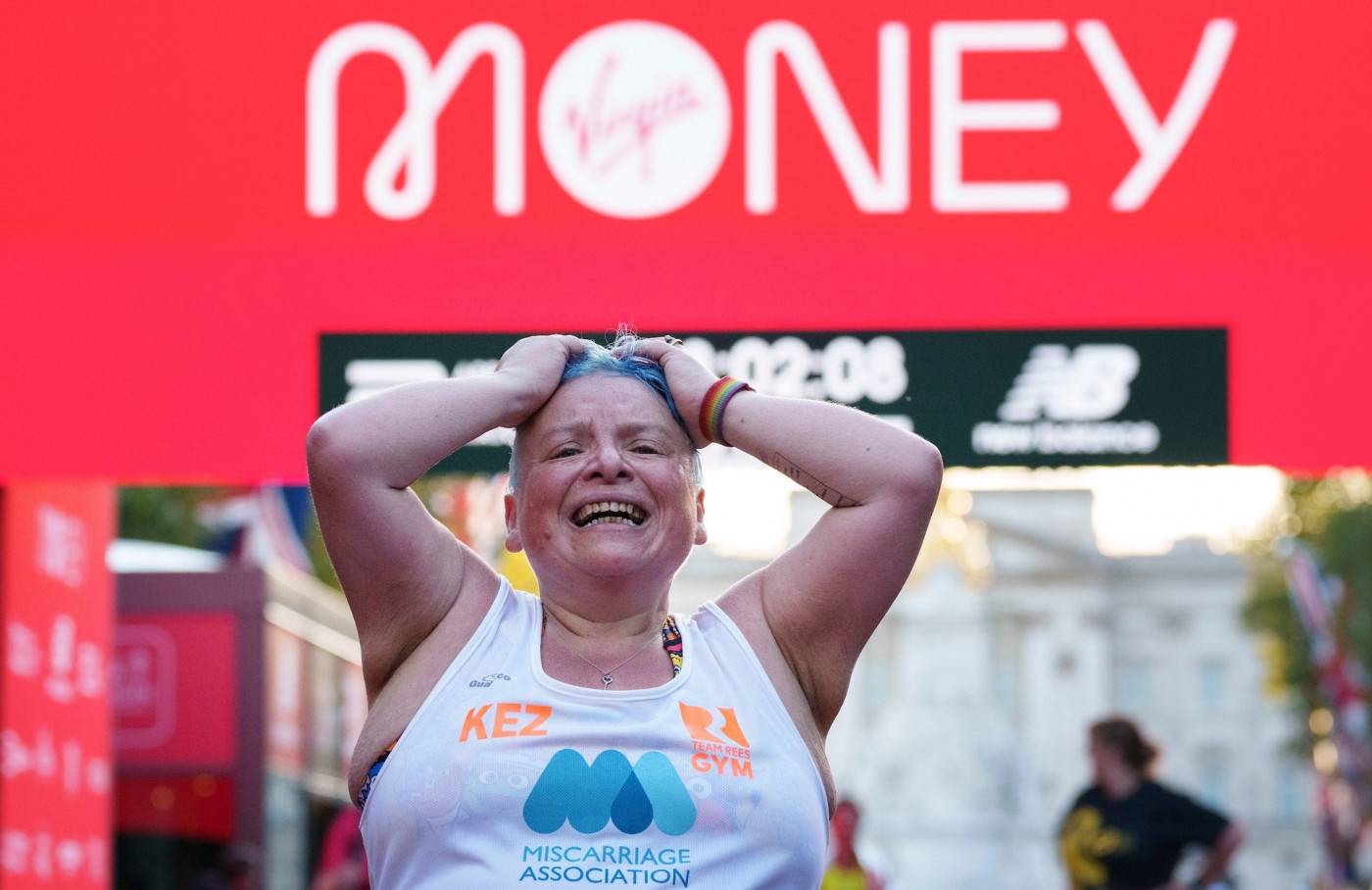
Run a fundraising event
The best time to collect funds for your cause is at a related event, where people will make the connection without you needing to make a lengthy explanation. If you can, make an announcement and explain what the money will be spent on at the beginning or end of your event. Use your volunteers to help, get some fundraising buckets (labelled with the name of your cause) and get shaking!
You could charge an entry fee, which would give you an idea of how many people you need to come to the event. It is hard to charge for events in public spaces, unless you’ve hired it as a venue, but selling food or drink is another way of bringing in extra cash. Just be sure to work out your margins, so you are able to raise some funds on top of your expenses.
Need to know: if you plan to sell alcohol you will need to check whether you need a Temporary Events Notice. This currently costs £21 and covers events of fewer than 500 people, including anyone helping to run the event. But you don’t need a licence to sell food! The Food Standards Agency states that one-off events such as street parties aren’t usually considered food businesses, so there are no forms to fill in. However, you must ensure that any food provided is safe to eat – including allergen information.
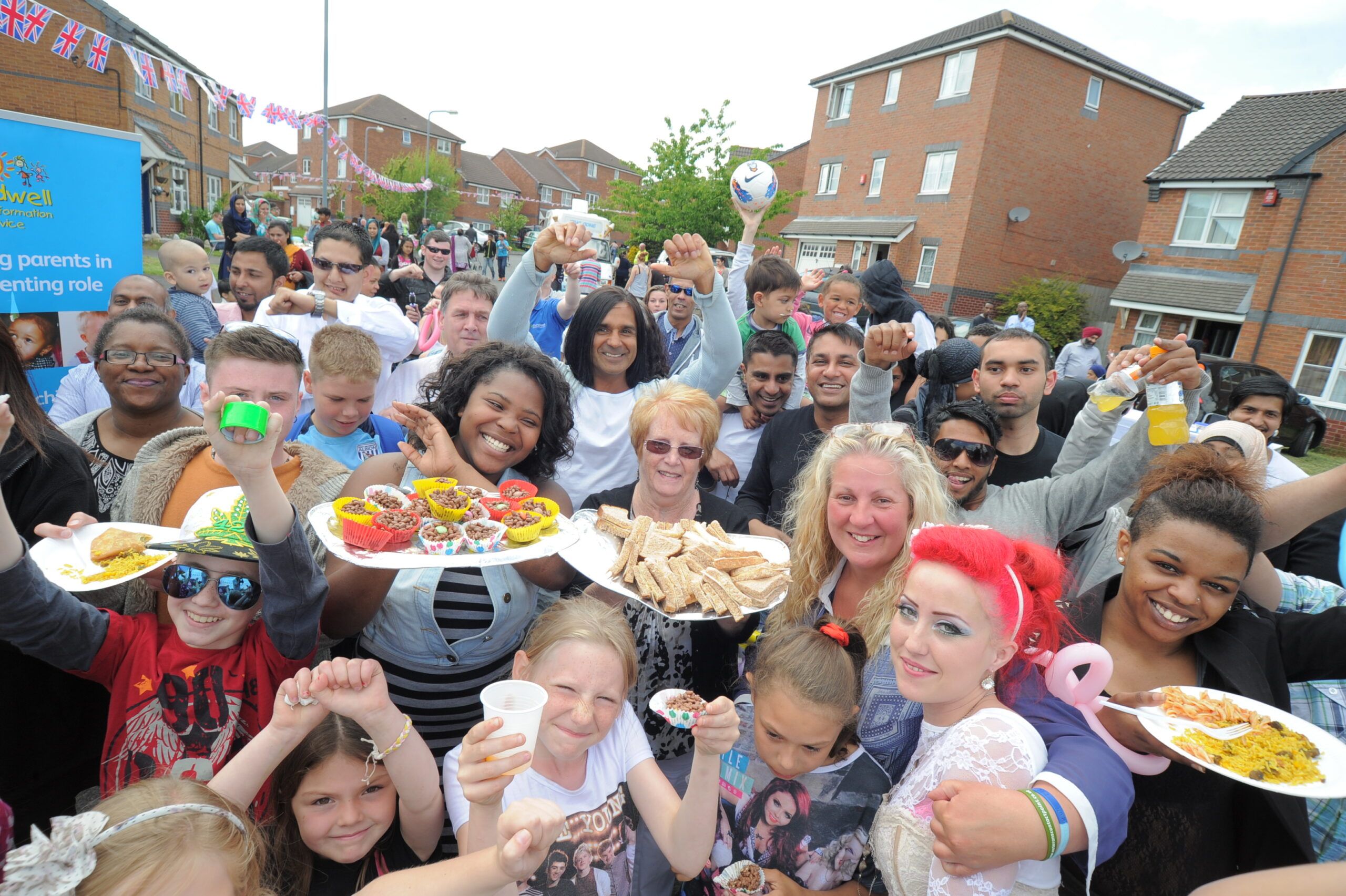
Sponsored or fundraising activities
Getting people to sponsor a trip through JustGiving or GoFundMe to take part in a skydive or climb Kilimanjaro is one way of getting funding in, especially if you pay your own costs. But if you’re fundraising for your own community, it makes more sense to keep it local and simple — pub quizzes, tombolas, sweepstakes, raffles, treasure-hunts, virtual bike rides, car boot sales and fetes are all relatively easy ways to raise some cash. These are all great activities and entertainment to tie into a Big Lunch too!
P.S. You don’t need a licence for an ‘incidental lottery’ (which includes raffles, sweepstakes and tombolas). Gambling regulations don’t apply if tombola or raffle tickets are sold on the day and the prizes aren’t worth more than £500 in total.
Powerfully local fundraising
Since 2015, over £100 million has been raised for good causes through Big Lunches – and over 3/4 of this goes to local charities or causes.
We think that’s something incredible to celebrate! With your help, we can make every penny go even further.
Business sponsorship
If you’re putting something into your community, the chances are that local businesses stand to benefit — improving your local area could help them increase footfall and custom. And through sponsorship, businesses can receive good publicity and advertising (and of course that warm, fuzzy feeling they get by supporting your cause). So, give them a chance to get involved and provide the means (leaflets, timings, online shout-outs) to help them promote to their customers.
Need to know: It’s best to be clear what you’re offering in terms of publicity — and put it in writing.
Crowdfunding
If it’s a local project, why not ask local people to support it? Crowdfunding usually has a specific ‘ask’ — funds for running costs are best sourced from elsewhere, but if there’s something specific you want to raise money for, such as a community garden, shop, or skate park then crowdfunding could be the way to go.
Be realistic — if you live in a small community then don’t expect thousands of pounds (unless you have incredibly generous neighbours!). And, make sure everyone can see the benefit; explain what the money will be used for.
Crowdfunder is a great site to get started. It enables you to raise funds, test, validate and market your idea – and build loyalty.
Community shares
Community shares are a way of allowing people to have a stake in your project. It works best for community assets (pubs, shops, other amenities or services such as energy) rather than events. Running a share offer might sound a bit daunting, but the Microgenius website enables communities to do just that. For example, in Hastings they’re using a community share offer to restore the town’s pier.
Counting on crowdfunding or share offers for all of your funding may not be realistic, so if you’re looking at a fairly big project, grit your teeth and see if there are fund-matching opportunities out there.
Need to know: You will need to set up an industrial and provident society and abide by the rules for co-operative societies to run a share offer.
Grants and funds you can apply for
The process is usually more formal, but there’s plenty of community grants you can apply for to help you scale-up your community project. We’ve listed our top choices in this handy guide.
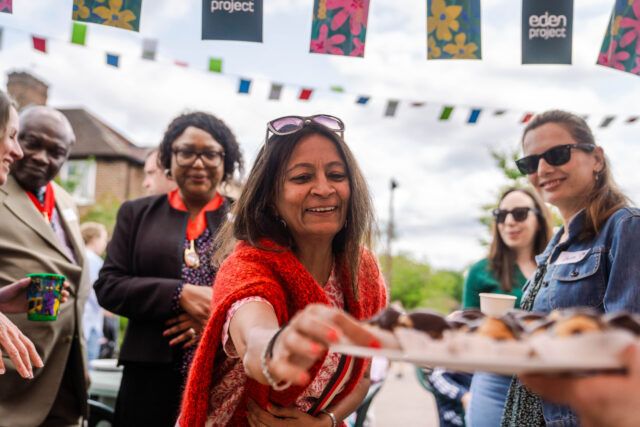
Find funding for your community
Many great projects are accomplished with little or no money. When people…
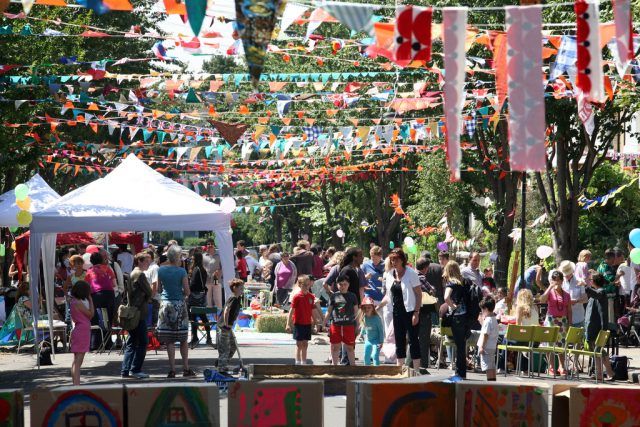
Fundraising ideas
Easy and achievable fundraising ideas for your Big Lunch (or other event!).
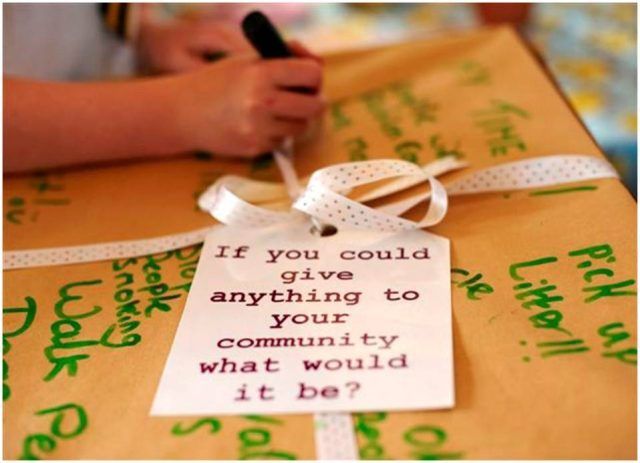
Donate
Donate to support communities across the UK.
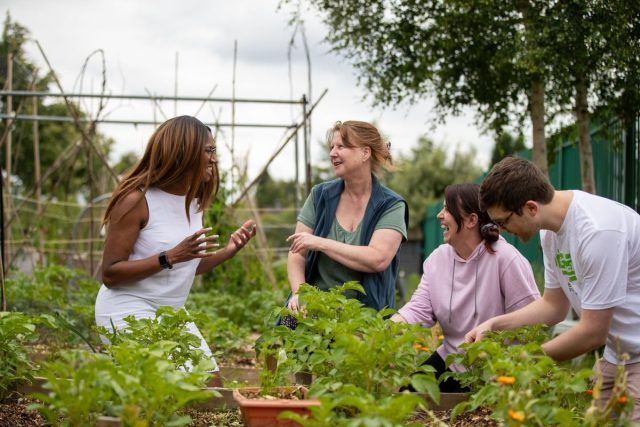
Community grants to apply for
A list of community grants and funds available to apply for.